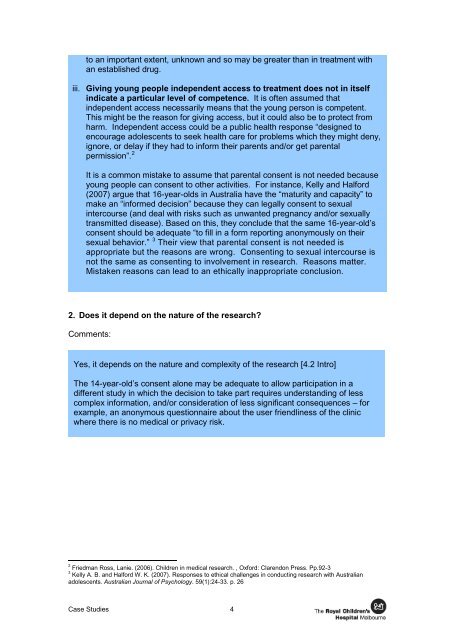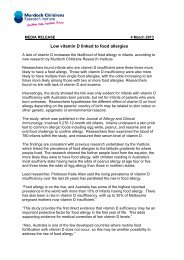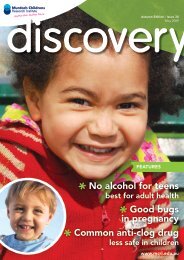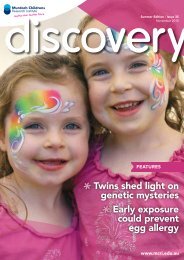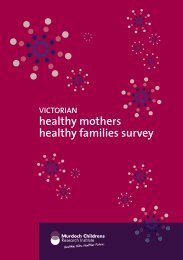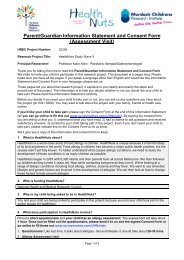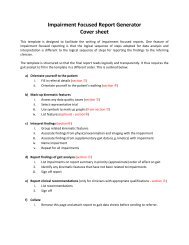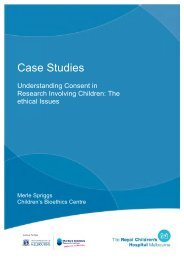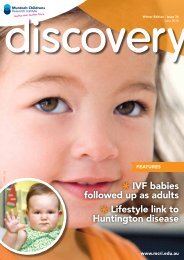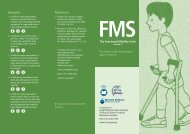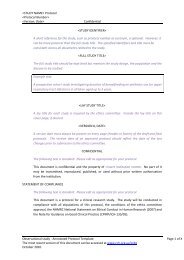Case studies: - Murdoch Childrens Research Institute
Case studies: - Murdoch Childrens Research Institute
Case studies: - Murdoch Childrens Research Institute
Create successful ePaper yourself
Turn your PDF publications into a flip-book with our unique Google optimized e-Paper software.
to an important extent, unknown and so may be greater than in treatment with<br />
an established drug.<br />
iii. Giving young people independent access to treatment does not in itself<br />
indicate a particular level of competence. It is often assumed that<br />
independent access necessarily means that the young person is competent.<br />
This might be the reason for giving access, but it could also be to protect from<br />
harm. Independent access could be a public health response “designed to<br />
encourage adolescents to seek health care for problems which they might deny,<br />
ignore, or delay if they had to inform their parents and/or get parental<br />
permission”. 2<br />
It is a common mistake to assume that parental consent is not needed because<br />
young people can consent to other activities. For instance, Kelly and Halford<br />
(2007) argue that 16-year-olds in Australia have the “maturity and capacity” to<br />
make an “informed decision” because they can legally consent to sexual<br />
intercourse (and deal with risks such as unwanted pregnancy and/or sexually<br />
transmitted disease). Based on this, they conclude that the same 16-year-old’s<br />
consent should be adequate “to fill in a form reporting anonymously on their<br />
sexual behavior.” 3 Their view that parental consent is not needed is<br />
appropriate but the reasons are wrong. Consenting to sexual intercourse is<br />
not the same as consenting to involvement in research. Reasons matter.<br />
Mistaken reasons can lead to an ethically inappropriate conclusion.<br />
2. Does it depend on the nature of the research?<br />
Comments:<br />
Yes, it depends on the nature and complexity of the research [4.2 Intro]<br />
The 14-year-old’s consent alone may be adequate to allow participation in a<br />
different study in which the decision to take part requires understanding of less<br />
complex information, and/or consideration of less significant consequences – for<br />
example, an anonymous questionnaire about the user friendliness of the clinic<br />
where there is no medical or privacy risk.<br />
2 Friedman Ross, Lanie. (2006). Children in medical research. , Oxford: Clarendon Press. Pp.92-3<br />
3 Kelly A. B. and Halford W. K. (2007). Responses to ethical challenges in conducting research with Australian<br />
adolescents. Australian Journal of Psychology. 59(1):24-33. p. 26<br />
<strong>Case</strong> Studies 4


